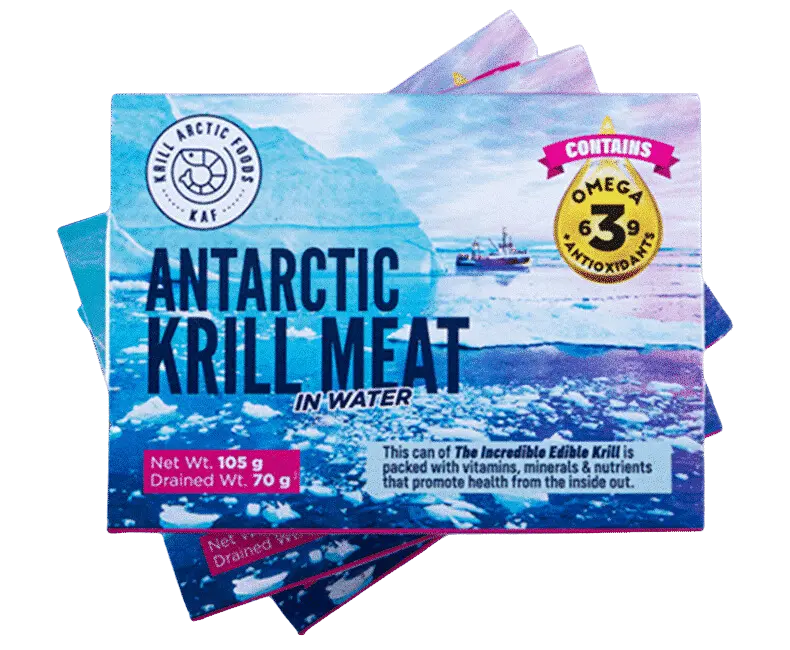- Home /
- Krill Oil vs Fish Oil: Which Supplement is Best

Posted On:January 24th, 2024
Krill Oil vs Fish Oil: Which Supplement is Best
Are you on a quest for the ultimate Omega-3 supplement? Confused by the nutrient-rich seas of Fish Oil and Krill Oil? You’re not alone. In this wave-breaking post, we’ll explore the big differences between these two powerhouse supplements, cutting through the confusion to help you determine which is the perfect fit for your health needs.
From right under their source in the icy waters to inside your vitamin cabinet, discover how each oil holds distinctive strengths and benefits for your well-being. Let’s sail into the clarity you’ve been searching for.
What is Krill Oil and Fish Oil
Krill and fish oil are dietary supplements rich in omega-3 fatty acids (EPA and DHA) that provide health benefits. However, there are some key differences.
- The fatty acids in krill oil have a different structure than those in fish oil, potentially impacting how the body uses them.
- Krill oil also contains an antioxidant called astaxanthin, which may offer additional heart health benefits.
- Additionally, cost and accessibility can be factors to consider, as fish oil is typically cheaper and more readily available.
Ultimately, weighing potential health benefits and personal preferences is important when deciding between krill oil and fish oil as a supplement.
Comparison of Krill Oil and Fish Oil
Krill oil and fish oil are the most popular sources of omega-3 supplements today due to their vast health benefits. Quality research supports both supplements’ respective advantages, but is there a considerable difference between them? Let’s take a look.
- In general, krill oil tends to be more expensive than fish oil because krill is found exclusively in Antarctic waters that require complex harvesting techniques. On the other hand, fish oils originate from various fish species and are cheaper and more readily available. This aspect means that fish oils are easier to access globally, while krill oil effectively caters to high-end markets, and accessibility may depend on your location.
- Another significant difference lies in how these supplements contain omega-3s: fish oils primarily contain EPA/DHA attached to triglycerides, while in krill oil, omega-3 fatty acids attach to phospholipids. Phospholipids play an essential role in cell membrane structure, which allows for better incorporation into cell membranes and makes the supplement easier to absorb.
Nutrients and Sources
As mentioned earlier, krill oil and fish oil are sources of omega-3 fatty acids EPA (eicosapentaenoic acid) and DHA (docosahexaenoic acid). However, there are some fundamental differences between them as well.
- While fish oils can only provide two types of omega-3 fatty acids—EPA and DHA—with varying degrees per serving size depending on the kind manufactured, krill oil offers these omega-3s and another class called phospholipid-derived fatty acids.
- Phospholipid-derived fatty acids play a vital role in cardiovascular health since they are associated with decreased inflammation and blood triglycerides, in addition to the benefits of EPA/DHA.
- To put things into perspective, 1000mg of krill oil provides about 240mg of EPA/DHA, while 1000mg of fish oil may provide anywhere from 180-800mg, depending on the type. However, it’s crucial to note that omega-3 levels vary across different brands, making it essential to check labels for quantity before purchasing.
- Krill oil is believed to be more stable than fish oil, primarily due to the natural antioxidant astaxanthin and better absorption. This component also provides numerous health benefits, such as reducing inflammation and oxidation damage.
To summarize the nutrient content differences between Krill Oil and Fish Oil:
| Nutrient | Krill Oil | Fish Oil |
| Omega-3 Fatty Acids (EPA/DHA) | Present | Present |
| Phospholipid-Derived Fatty Acid | Present | Not present |
| Astaxanthin | Present | Not present |
| Vitamin A | Present | Not present |
| Vitamin E | Present | Varied amount |
Remember that these supplements are beneficial only when taken in moderation and as part of a healthy diet. It’s time to compare the specific health benefits both supplements offer individually.
Analyzing the Benefits of Both Supplements
Omega-3 fatty acids are essential for optimal health, and krill and fish oil are excellent sources. However, they differ in how the body responds to them. While both have advantages and disadvantages, the right choice depends on your overall health objectives.
Omega-3 Fatty Acids and Other Health Benefits
- Krill oil contains EPA and DHA omega-3s, which are vital for good health. However, it also contains astaxanthin, a potent antioxidant that helps protect cells against damage from free radicals.

- On the other hand, fish oil is equally rich in omega-3s but lacks astaxanthin. It has been scientifically proven to reduce inflammation, improve brain function, and reduce the risk of heart disease. One study even found that regular fish oil consumption reduced the risk of sudden cardiac death by almost 50%.
- According to one study, krill oil was more effective than fish oil at lowering blood sugar, triglycerides, and LDL cholesterol levels. Nonetheless, further research is required to confirm these findings.
- In contrast, Fish oil is typically cheaper and more accessible than krill oil because krill is smaller and less abundant than most commercially exploited fish species.
Identifying which type of supplement will suit your needs will depend on your overall goals for consuming the supplement. If you’re looking for a high dose of EPA/DHA without worrying about price or availability, then krill oil seems like an excellent option. On the other hand, if you’re more budget-conscious and looking for a reasonably priced supplement that gets the job done, fish oil is your best bet.
It’s also worth noting that both supplements may affect blood clotting, so it’s crucial to consult with a healthcare provider before adding them to your daily regimen. If you have any history of fish or shellfish allergies, talk to a healthcare provider first.
Distinctive Features of Krill Oil and Fish Oil
Both krill oil and fish oil are popular dietary supplements that provide omega-3 fatty acids necessary for good health. While both contain the EPA and DHA essential fatty acids, they have some unique differences.
- One of the significant differences between krill oil and fish oil is that krill oil contains astaxanthin, a potent antioxidant that helps protect cells from damage caused by free radicals. Fish oil, on the other hand, doesn’t contain astaxanthin.
- Another distinct difference between these oils is that the polyunsaturated fatty acids in krill oil are partly attached to phospholipids while those in fish oil are bound to triglycerides. This binds results in improved absorption of omega-3s in krill oil as enzymes can easily access them compared to those in fish oils.

Potential Side Effects and Precautions
Although both krill oil and fish oil are generally safe for consumption, you should be aware of some potential side effects and precautions before incorporating them into your daily routine.
- For instance, both supplements may affect blood clotting, so individuals taking anticoagulants or undergoing surgery should consult a healthcare provider before taking either supplement. Additionally, if you have a seafood allergy, you may want to avoid krill and fish oil supplements as they could trigger an allergic reaction.
- Another possible side effect of omega-3 supplements is gastrointestinal distress, such as nausea, diarrhea, or indigestion. This usually occurs when taking high doses or consuming them on an empty stomach. To minimize these effects, take the supplement with food or switch to a lower dosage.
- It’s also essential to consider the quality and purity of the supplement before purchasing it. Krill oil may contain trace amounts of heavy metals or toxins from its harvesting process, while fish oil may have undergone inadequate processing that could result in rancidity or oxidation.
Here’s a summary of potential side effects and precautions to keep in mind:
| Side Effect/Precaution | Krill Oil | Fish Oil |
| Blood clotting | May affect blood clotting; consult with healthcare provider if taking anticoagulants or undergoing surgery | May affect blood clotting; consult with healthcare provider if taking anticoagulants or undergoing surgery |
| Seafood allergy | Avoid if allergic to seafood | Avoid if allergic to seafood |
| Gastrointestinal distress | Possible at high doses or on an empty stomach | Possible at high doses or on an empty stomach |
| Quality/purity concerns | Check for heavy metal/toxin contamination due to harvesting process | Check for rancidity/oxidation due to inadequate processing |
Think of potential side effects and precautions as analogous to preparing for a trip – packing all the essential items and making sure you do your research before you go.
Conclusion
In summary, quality research supports the health benefits of both krill oil and fish oil supplements. However, it’s crucial to be aware of possible side effects and precautions before incorporating them into your diet. Consult with a healthcare provider if you have any concerns or medical conditions. Quality and purity are paramount with any supplement, so always purchase from reputable sources.
Related Posts
Shop
Products You May Like
Lorem Ipsum is simply dummy text of the printing and typesetting industry
m Ipsum is simply dummy text of the printing and typesetting industry.






